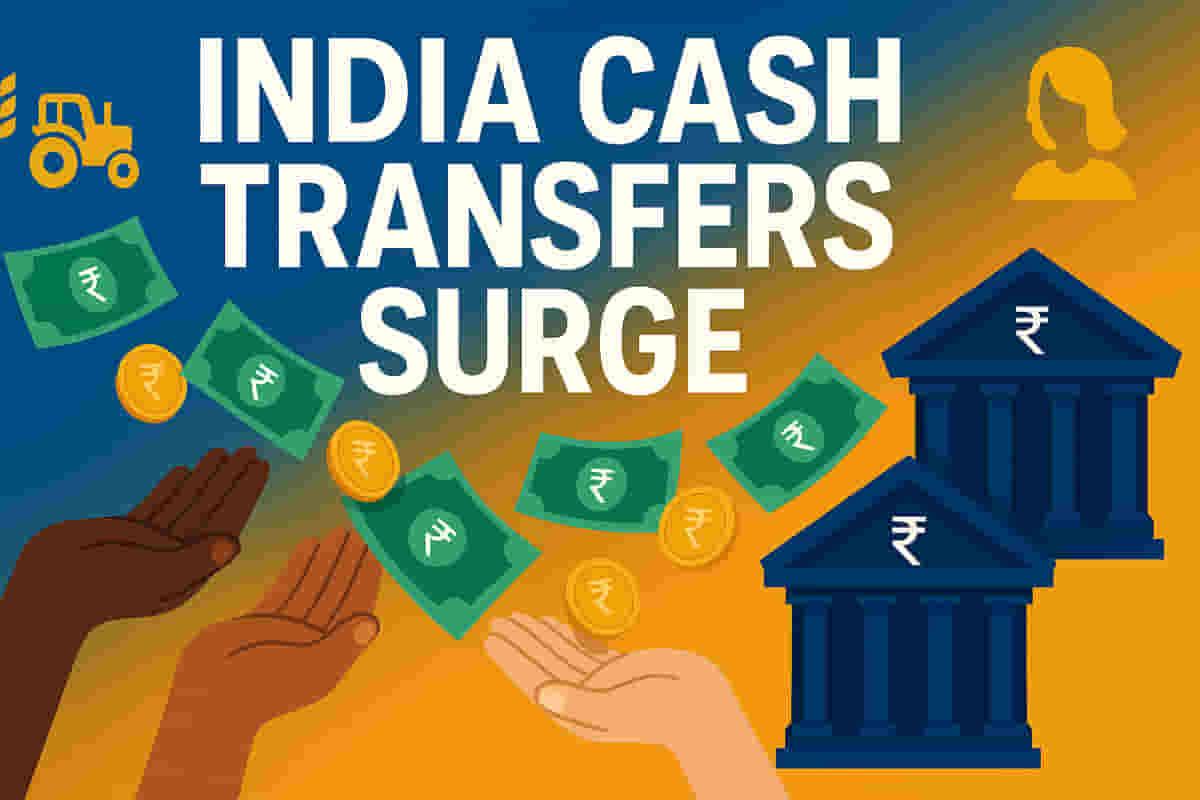India's Unconditional Cash Transfers Surge 23 Times, Boosting Economy Despite 'Freebie' Criticism
Economy
|
30th October 2025, 12:42 PM

▶
Short Description :
Detailed Coverage :
India has seen a dramatic 23-fold increase in annual budgets for unconditional cash transfers (UCTs) over the last decade, reaching ₹2,80,000 crore for 2024-25. Nearly 78% of this is directed towards schemes for women and farmers, focusing on economic empowerment and investment support. This growth highlights a gap between policy favouritism towards cash transfers, as supported by the Economic Survey of India, and public perception often critical of 'freebie culture.' Evidence suggests UCTs are more efficient than traditional welfare like subsidies, avoiding market distortions and leakages, exemplified by the PAHAL scheme for LPG, which saved ₹73,433 crore. Global and Indian studies, including those from 'Project Deep' and research by Weaver et al., indicate recipients use funds for long-term assets and investments, contradicting claims of increased laziness. Instead, cash transfers have been shown to improve food security, dietary diversity, psychological well-being, and generate economic multipliers. However, challenges persist in ensuring data adequacy for identification and reach, simplifying KYC requirements, and improving grievance redressal, leading to exclusion errors. Furthermore, a significant number of PMJDY accounts remain inoperative, highlighting barriers like distance from banks, communication issues, and financial literacy gaps. Addressing these last-mile hurdles through a human-centric approach is crucial to unlock the full potential of UCTs.
Impact: This news has a moderate impact on the Indian stock market as it reflects government fiscal policy and spending priorities in welfare. While not directly tied to specific corporate earnings, shifts in welfare spending can influence consumer demand and overall economic sentiment, making it relevant for investors tracking macroeconomic trends. Rating: 7/10
Difficult Terms: Unconditional Cash Transfers (UCTs): Direct cash payments given to individuals or households without any specific conditions attached, such as requiring them to work or spend the money in a particular way. Direct Benefit Transfer (DBT): A system where government subsidies and welfare benefits are directly transferred to the bank accounts of beneficiaries, aimed at reducing leakages and improving efficiency. PAHAL (Pratyaksh Hanstantrit Labh): A specific Indian government scheme that implemented DBT for cooking gas (LPG) subsidies, transferring the subsidy amount directly to users' bank accounts. KYC (Know Your Customer): A process used by financial institutions and other regulated entities to verify the identity of their clients, often required for opening accounts or conducting transactions. PMJDY (Prime Minister Jan Dhan Yojana): A national mission for financial inclusion to ensure access to financial services, namely banking/savings & deposit accounts, remittance, credit, insurance, and pension in an affordable manner. LPG (Liquefied Petroleum Gas): A flammable hydrocarbon gas mixture used as a fuel for cooking and heating.